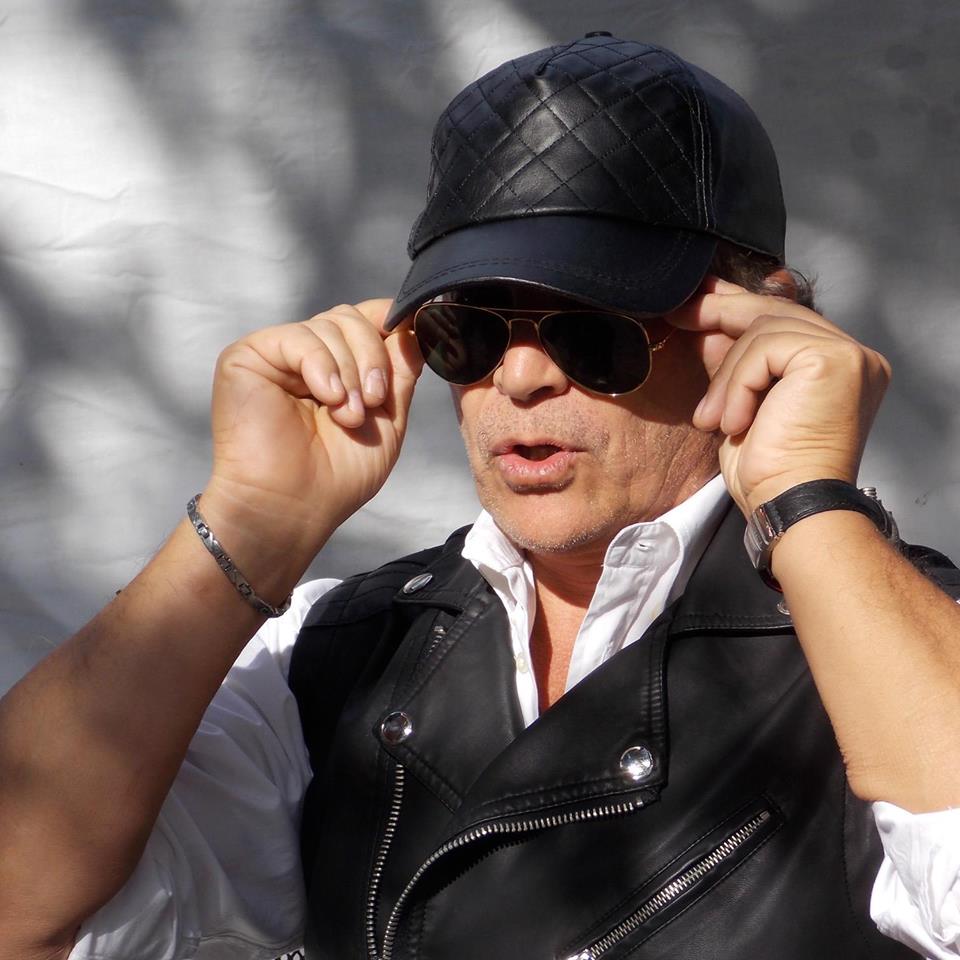
|
Giuseppe Idile, stage name of “the Captain”, was born in Sassari (Sardinia) in 1960. He started his artistic path following his father’s traces “Raffaele Idile”, a famous Sardinian painter. As a consequence, he painted oil paintings with a style, a technique and many contents which reminded of his father’s art, signing himself under the pseudonym of “Alex”. Very soon he realized that he preferred translating his father’s feelings, passions or simply mood into “musical verses” instead of paintings. Therefore he started composing his songs. In the meantime he enjoyed himself as a radiophonic speaker in his city’s radio broadcasting stations. He was about twenty when he decided to move from his place of origin to Varese (Lombardia, in the north of Italy), where he became well known as “a piano bar musician” and so he wrote an album just entitled Piano Bar. Then he moved again from Lombardia to Emilia Romagna, in Reggio Emilia to be precise (another northern Italian city), where he has still been living. He was a great pal with Gianni Bella, a famous Italian singer-songwriter and, thanks to this friendship, he succeeded in realizing a “Dance Rap” cover of the song Più ci penso (I think more..) in which the American singer Pierre Gerard participated too. At the same time the Captain worked together many radiophonic and television editors, creating advertising jungle and “lots of musical pieces”, many of them are still in use. The Emilian life paces, quieter in comparison with the north of Italy big cities ones (where he went on coming to), led him to think over the typical social themes of the big “metropolis”, expecially how they became real trends for others urban conglomeration. The album Metropoli, infact, was originated from these thoughts, which were held between the desire of a future innovation and the nostalgia for ancient landscapes, smells and tastes of remote times and spaces. Simultaneusly the artist published chants and music of his Sardinian tradition but in a personal version, which were broadcast from extraterritorial stations.
|
|
The close bond of affection with his native land led him to the creation of the album Credimi (Believe me), whose songs were the trade d’union between his land and the whole Italy. The Captain, infact , came back to Sardinia during his breaks, so mixing with sea and land people. As a result his artistic production was influenced by those experiences in a particular way, both as an author and as a composer. He decided to sing in Italian and not in Sardinian language because he thought that his songs messages were to be enjoyable by a larger public, even when he decided to introduce some Sardinian historical traces abroad, as the song Shardana contained in this album, which he considered as a special tribute to his “isle”. Even so, the Captain had measured himself with the performance of wonderful and typical chants of the Sardinian musical tradition, because he was convinced that every native Sardinian artist had to share in the creation of a musical heritage for his land with a personal tribute, which was very important for the “region Sardinia” itself. Basically there was a purpose in the text and music of his artistic path (sometimes obvious and others only palpable): the Captain wanted to combine the typical characteristics of his ancient and magic land (as he friendly loved to call It) with the rest of Italy subcultural varieties. Around these human values, chosen as the Album fundamental topics unified in a very high feeling of love, many habits, customs and traditions of every countries went near each other and, although the superficial differences, they discovered themselves very similar in the values essence. This album arose chiefly from the cooperation between “the Captain” and the Sardinian painter-author Shikanu.
After five
years from the publishing of the album Credimi (Believe me) and lots of
personal reflections about Life, the Captain presented himself again to
his public but in a new form: he abandoned all the sentimental themes,
the romantic attitudes and the exaltation of his belonging Sardinian
culture to put on the social changes of those times, both in Italy and
in the world. The artist explained all this in an interview for Radio
Free when he said: “Nobody can pretend to know nothing because we are
following a route, better still, the powerful world figures make us
follow a route without a way back, if we don’t stop them. We have to
intervene, we have to make them hear our peaceful but determinate
protest, otherwise, if we follow the route which our powerful figures
order us in a passive and compliant way, it will take us straight ahead
the end, ahead the destruction of the hope of every social justice and
therefore of Peace. This is not catastrophism but the meaning of the
reality, a way of awakening our consciencies or sensitizing people who
haven’t still taken note of the reality. Everybody have a particular
responsibility and task. I’m an artist so I have decided to share in the
change with my songs text and music which can leave an optimistic and
constructive message to one who listens to them. All this for a better
future, better still, for that future which many people are waiting to
be called to live”.
|
|